Projects
Adaptive Education
To the project browser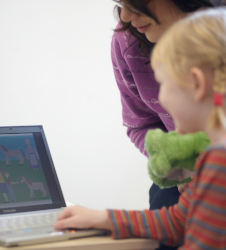
DigitLern
The DigitLern project aims to explore the opportunities and challenges of (digital) distance learning and teaching during the coronavirus pandemic for children and young people with learning difficulties.
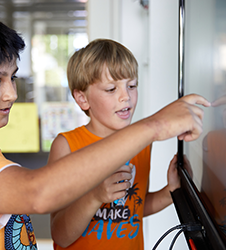
EABU
The research group aims to identify the causes of educational inequalities, analyse changes over time and identify the risks and opportunities of digitalization to reduce educational inequalities.
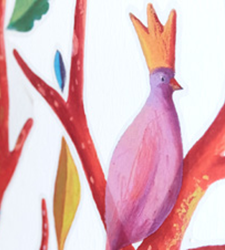
World Vision Children Study
What does it mean to grow up in Germany? In order to answer this question children as agents of their own lives are asked qualitatively and quantitatively about the main topics of child well-being, child poverty, and justice, as well as flight and migration.

Step-by-Step
A broad variety of professional modules, based on the psychoanalytical and interdisciplinary trauma research on the one hand and socio-pedagogical and educational concepts on the other hand, has been intended to offer “first steps” as a sort of first aid in the initial refugee reception Michaelisdorf and to initiate “second steps” to support the immediate and sustaining integration into Germany at the same time.
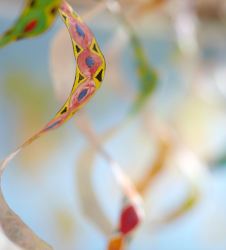
EDUCAREplus
The research project aims at a better understanding of the persisting social inequality in children’s school success. The main focus is on socioeconomic differences in attitudes, beliefs, and practices of children, parents, and educators with regard to education and care in early and middle childhood.
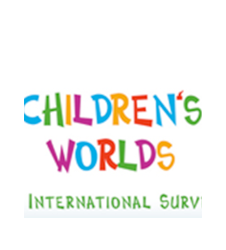
Children’s Worlds
An international study of material, social, and cultural conditions of a good life and opportunities of education and participation from children’s and youth’s point of view.
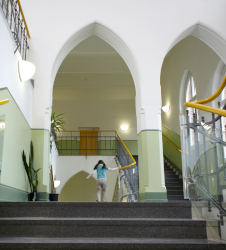
Attitudes and Actions of Parents and Professionals
The study examines from an educational and socio-scientific perspective the attitudes held by parents and educators at early childhood education and care (ECEC) facilities and primary schools, as well as their underlying beliefs and interactions. The focus is on processes found at the intersection of families and educational institutions that give rise to, reinforce or reduce educational inequalities.

UfEBB
The project UfEBB focuses on the education of under-three-years-old and the unequal conditions for development.
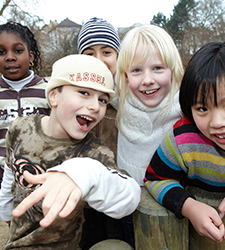
SelF
The project SelF deals with the implementation of specific self-regulatory strategies in different areas of application.

RifA
The project is focused on the question what makes a childhood shaped by poverty particularly vulnerable. The research interest aims to the questions if children are different effected by vulnerability and transgression than adults as well as how the spatial-structured conditions of the growing up of children have an influence on it.